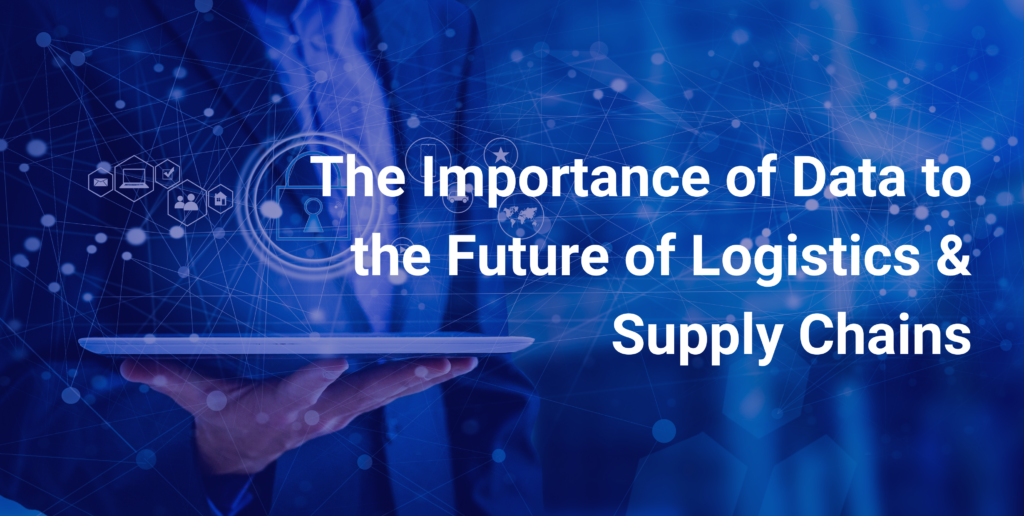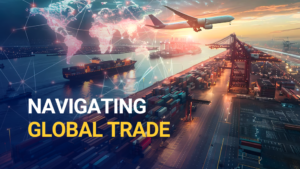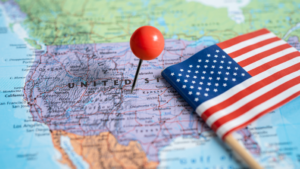Data capture, analytics, and AI are redefining how operational command centers – known as Supply Chain Control Tower, will lead the way in the transformation towards Supply Chain 4.0.
A Quest for Transformation
Categorically speaking, there have been several phases of industry (Industry 1.0, 2.0, & 3.0), all of which have their own defining set of characteristics— 1.0 had steam-powered mechanization, 2.0 had mass production, and 3.0 saw the implementation of automation, robotics, and IT systems. Many experts believe that we’re currently in the midst of a transformation towards Industry 4.0 – where industries and businesses will become unified, smart ecosystems that are interconnected, intelligent, and data-driven.
The demand for clean data across all verticals of the business remains critical to ongoing industry transformation. Companies are now seeking ways to capture as much information as possible about their operations but will need to ensure they acquire sufficient quantities of relevant, valid data so that they can draw actionable insights, make optimizations, and ensure business growth continuity.
Yet, having sufficient quantities of data is not merely enough. Businesses need to ensure that they have the capability, teams, and tools in place to accurately dissect their datasets in order to transition to Industry 4.0 or risk getting left behind successfully. To avoid getting left behind, businesses can deploy a centralized system that is powerful enough to dissect, analyze, and learn from historical data patterns and make improvement recommendations on a time-sensitive, continual basis.
In the supply chain industry, we refer to these as Supply Chain Control Towers. These operational command centers are where strategic decision-makers can easily make informed decisions based on the vast swathes of insights presented to them on the tower’s dashboard. As we continue to accelerate toward supply chain 4.0, any business with complex cross-border logistics operations ought to incorporate a big, data-driven, and automated Supply Chain Control Tower into their supply chain strategy.
Big Data Points for Supply Chain Control Tower
Complex supply chains produce tons of data daily with each component producing vast quantities of relevant data that is beneficial to operational intelligence. On the surface, an obstacle that many organizations might encounter is determining which data is relevant, and where should the data come from.
Let’s divide a supply chain into seven components:
- planning
- sourcing
- production
- warehousing
- transportation
- point of sale
- consumer
There are ample big data points that organizations can extract and leverage to their benefit. For example, some of the big data opportunities in the transportation phase can be optimized delivery schedules based on historical delivery patterns or real-time delivery routing that factor in live traffic and weather conditions.
Likewise, in the production phase, production can be scheduled during off-peak times to reduce energy consumption. Whilst in the warehousing phase, workers can be auto-assigned to specific zones based on pick-pack efficiency records. Inventory can also be mapped to the most optimal locations.
All of these supply chain data points along with many more can be useful as long as they are analyzed correctly.
The real data-related issue that organizations face is that data comes in many shapes and formats and has a tendency to get stuck in silos—failing to move between suppliers and stakeholders along the chain. A data silo and misaligned formatting are major operational inefficiencies that can cause significant delays, revenue loss, and more which is why businesses need to ensure that information is consolidated, unified, and flows freely to all involved parties via a centralized system.
Supply Chain Control Tower Analytics
The centralized system (Control Tower) that facilitates this data exchange can be built to establish a double-pronged approach toward data. First, it should be leveraged to import, clean, and unify data from the various data points. Second, the Control Tower should then be capable of analyzing its self-fed data to forge an accurate picture of what is happening on the ground, make predictions, and substantially be able to mitigate inherent risks.
This is where big data analytics comes into play. Analytics uses data and quantitative methods to improve decision-making that is comprised of an expanded dataset beyond traditional ERP and Supply Chain Management systems. Control Tower operators can deploy different types of analytics to obtain a variety of information about their supply chain operations. For example, descriptive analytics provide visibility and act as a single source of truth for internal and external systems, prescriptive analytics can be used to solve problems and foster collaboration for maximum efficiency, whilst cognitive analytics can be used to create simple answers to complex questions.
That being said, there are still challenges to big data analytics in supply chains that need to be overcome. A lack of technical expertise and structured processes to explore, evaluate, and capture big data opportunities are namely the main limitations. However, in the past few years, the strides and major advancements in cognitive technologies such as Artificial Intelligence (AI) mean that businesses now have intelligent and autonomous systems at their disposal that can be applied to data analytics to expedite the entire process.
Cognitive technologies such as AI and Machine Learning (ML) can learn from and analyze data at a much greater capacity and pace than humans. Their processing capabilities have only become more sophisticated and it is all but assured that they will continue to evolve given that they have recently become a mainstream phenomenon. The AI/ML model used ought to be autonomous, continuously feed self-import relevant data, and have skilled personnel training and optimizing the system to ensure that it produces relevant insights.
Breaking Down Data Silos, Cognitively
A big data-driven, Supply Chain Control Tower powered by cognitive technologies creates a connected, personalized dashboard of information that facilitates understanding, prioritization, and resolution of issues in real time.
Some specific types of Supply Chain Control Towers that businesses can deploy include transportation control towers which offer advanced shipping notifications, delivery data, track-and-trace information as well as inbound and outbound shipment visibility. Similarly, an inventory control tower can provide insights into inventory management and operates with an emphasis on preventing stockouts and inventory shortages by working in tandem with a supply assurance tower to ensure that there is an adequate supply available and that more inventory is planned for delivery in the future. Ideally, businesses will want to deploy an end-to-end control tower that covers all operational bases and provides visibility over the entire supply chain yet, that could involve a considerable amount of time, effort, and resources that they might not have at their disposal.
Luckily, leading supply chain technology providers have the software such as a centralized supply chain management system, that can act as an excellent Control Tower. By leveraging the existing systems on the markets, businesses will be rewarded with key benefits including real-time end-to-end visibility, predictive and prescriptive decision support as well as facilitated collaborative information sharing. It will also avoid them having to invest more resources than required to establish their operational command center.
By using big data to fuel their Control Tower businesses will also be able to reduce operational costs and improve profit margins, gain a better understanding of potential risks, and increase their operational planning accuracy—all of which help to create a lean supply chain and prepare organizations for anything that may come their way in the future.
Factors to Consider When Building
To build an effective Supply Chain Control Tower well suited for Industry 4.0, there needs to be an emphasis on connectedness, collaboration, cyber-awareness, and cognitive enablement. Working alongside an integrated supply chain technology provider can streamline the construction process and save business owners the hassle of building their tower from the ground up and give them instantaneous reports so that they can start optimizing straight away.
Should businesses opt to go it alone, when building their Control Tower, there are several factors that need to be considered namely how to improve internal data usage, how to incorporate external data, how to automate data capture and feeding into the model along with how to implement and train the AI/ML model. Should businesses deploy an inadequately trained system, it will not be able to recognize seasonal anomalies causing long-term trends to flatten and skew the insights that it is capable of generating. The Control Tower system should also be built with an emphasis on user-friendliness that will enable all individuals to use data-driven methodologies in their respective landscapes.
As with any technological endeavor, there should always be an emphasis on data quality and ensuring that the system produces practical and actionable outputs. It is also crucial that stakeholders keep an open mindset and seek out the most practical, effortless, and affordable solutions to their supply chain problems.
To address data reporting and formatting misalignments, companies in the value chain and across the supply chain and logistics sector as a whole ought to collaborate more to create unified data reporting and presentation systems. A standardized unified reporting system that all stakeholders adhere to will streamline and eliminate a major roadblock in data processing and analysis thereby enabling brands to quickly draw relevant strategies that extend far beyond their supply chain and into their marketing, sales, and customer experiences.
If you’re looking for an all-in-one supply chain control tower, then you should ship with Floship. Our intelligent proprietary logistics platform has helped thousands of e-commerce brands take back control of their supply chains. Click here to get in touch with one of our team

Ready To Upgrade Your Logistic Solution?
Speak to Floship ecommerce logistic consultant about improving your global support chain today




